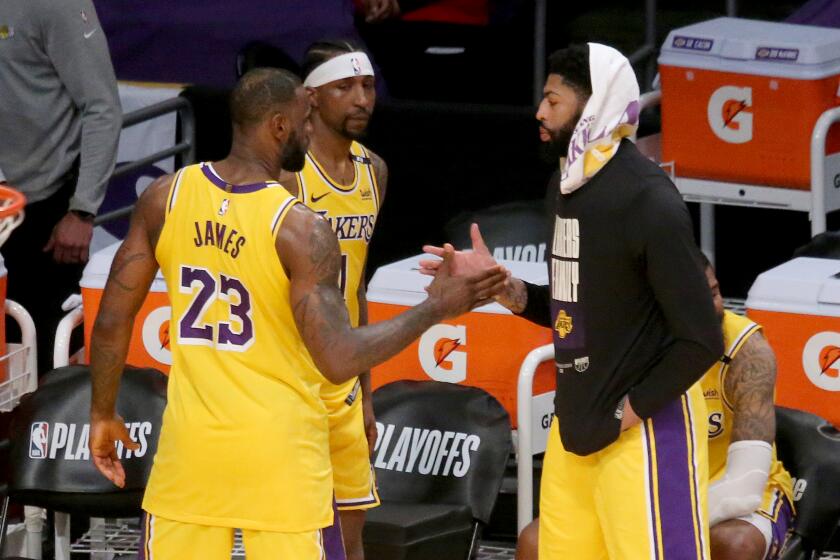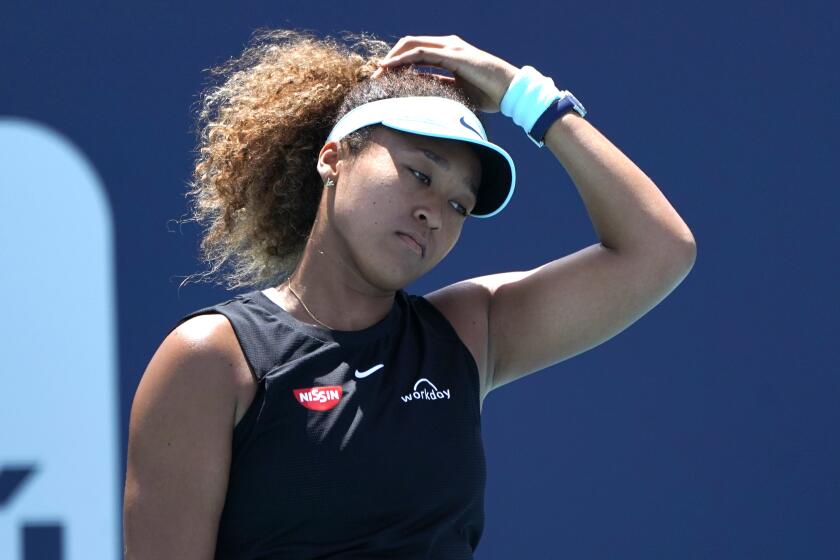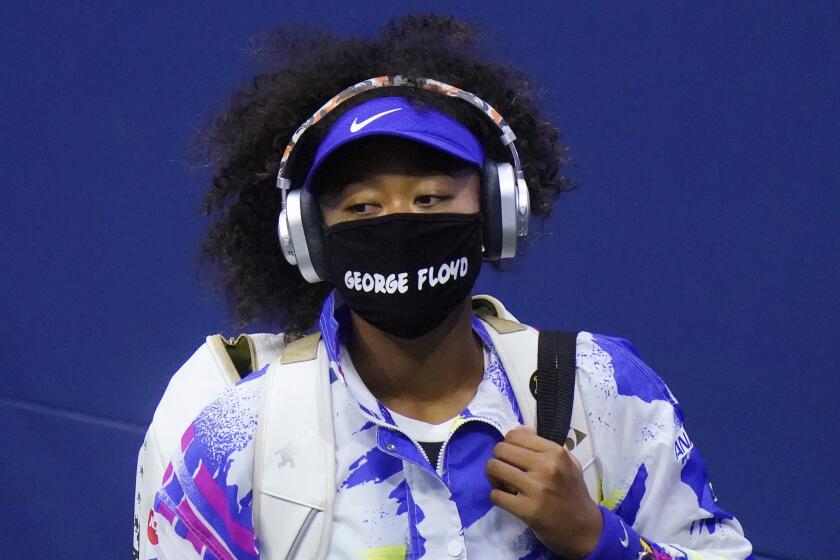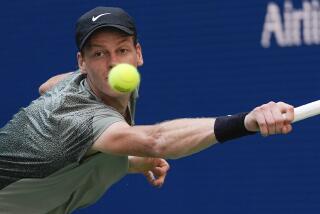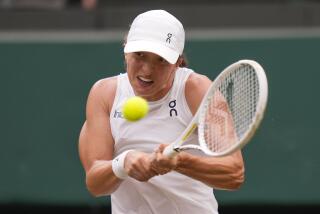Serena Williams coaches herself to comeback victory at French Open
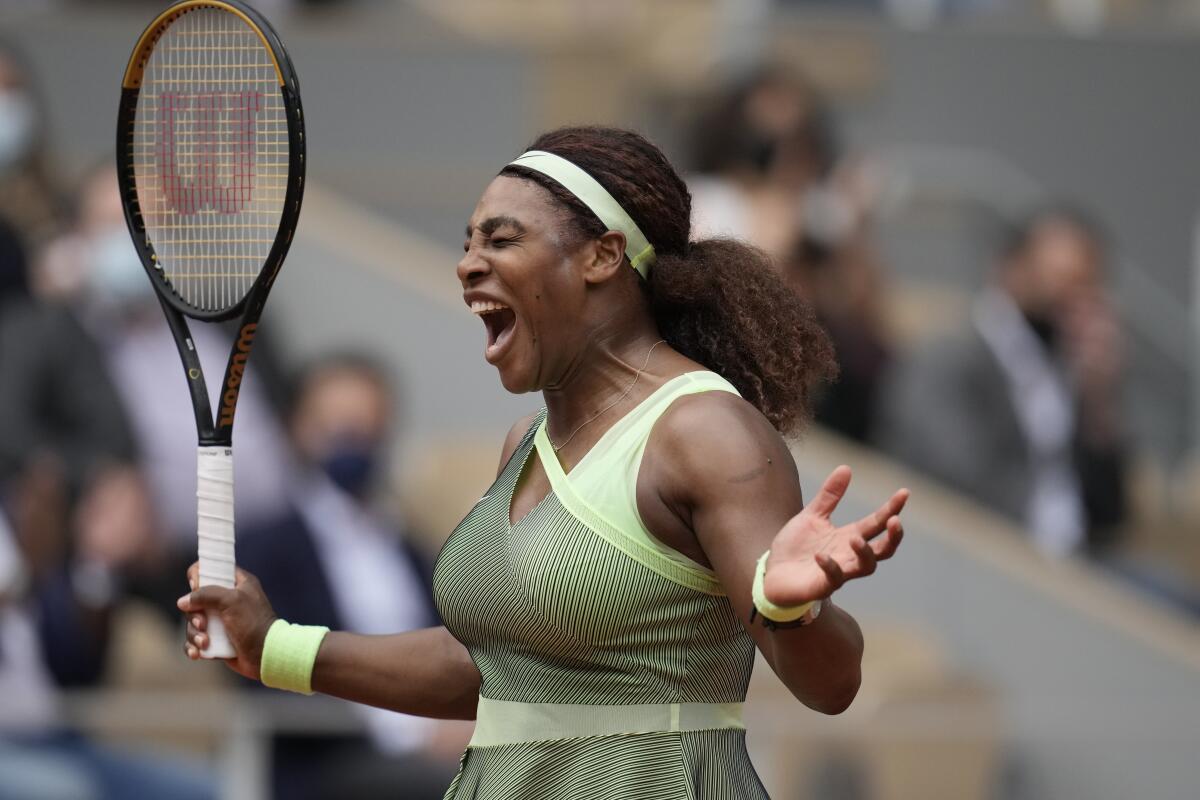
PARIS — Even a 23-time Grand Slam champion needs to remind herself now and then how to play winning tennis.
Serena Williams employed verbal motivation to help her recover from a 4-1 deficit in the second set of a 6-4, 6-4 victory over fellow American Danielle Collins in the third round of the French Open on Friday.
Yelling, “C’mon,” and, “Move your feet,” Williams started dominating again with big serves and crushed returns for which the 50th-ranked Collins had no answer.
“That felt really good for me,” Williams said. “Things were not going my way. It’s not like she gave me those games. I had to earn it and turn it around. That was really positive for me going into the next match.
“I needed to find me, know who I am,” Williams added. ”Nobody is Serena out here. It’s me. It’s pretty cool.”
During a stunningly sordid playoff exit Thursday in Game 6, the Lakers future is in doubt with LeBron James aging and Anthony Davis appearing frail.
The turnaround was also evidenced in Collins’ body language and conversations with herself. The Floridian, who grew up emulating the Williams sisters and playing on public courts just as they did, let her racket drop from her hands and then kicked it away in frustration after missing one particularly important shot.
Collins also sarcastically said, “That’s excellent,” after shanking another shot following a long rally that appeared to conclude with an awkward bounce in the final game.
Williams needed three sets to get by Mihaela Buzarnescu in the previous round, and she clearly did not want to go the distance again this time. Even when a series of untimely double-faults early in the second set enabled Collins to win four consecutive games.
Williams’ determination was also witnessed during the first set, when she ran down a drop shot from behind the court and won the point to break for a 4-3 lead.
When it was done, Williams and Collins both smiled as they shared a friendly embrace at the net.
Collins said she told Williams she would “love to see her win the whole thing.”
“She’s the greatest player of all time,” Collins added. “I think we all admire and love Serena, especially the American players. It was pretty surreal today to go out there and be playing against somebody I remember watching at age 9 and 10.”
We need to recognize mental health disabilities. Tournament officials should have made reasonable accommodations for Osaka’s depression and anxiety.
Still chasing a record-tying 24th Grand Slam singles title, the 39-year-old Williams next faces 21st-seeded Elena Rybakina, who defeated Elena Vesnina 6-1, 6-4 to reach the fourth round for the first time at a major.
Meanwhile, Russian player Yana Sizikova was released from police custody after being arrested on suspicion of match-fixing during last year’s tournament in Paris. The 26-year-old Sizikova denies the allegations.
Aside from Williams, top women’s players continue to exit Roland Garros.
The latest to go home was third-seeded Aryna Sabalenka, who was upset by Anastasia Pavlyuchenkova 6-4, 2-6, 6-0.
Sabalenka had been the highest remaining seed after top-ranked Ash Barty retired from her second-round match because of an injury Thursday. Second-seeded Naomi Osaka withdrew after the first round, saying she is taking a break from competition for mental health reasons.
Sabalenka’s 39 unforced errors helped Pavlyuchenkova reach the fourth round for the first time since she made it to the quarterfinals in Paris a decade ago.
“That was a while ago,” the 31st-seeded Pavlyuchenkova said. “I’m enjoying much more now every point (in) the tough matches than I used to before. I guess that also (is) the reason why I’m still here in the second week.”
Pavlyuchenkova’s next opponent will be Victoria Azarenka, who beat 23rd-seeded Madison Keys 6-2, 6-2 in 70 minutes.
Early in the afternoon, play was interrupted briefly by rain on all courts besides the main stadium — where the roof was closed. Federico Delbonis said the interruption helped him calm down after stress started to get hold of him toward the end of the second set of his match with Fabio Fognini.
Her move highlighted an issue long bubbling in sports: When stress is part of the game, what’s the best way to handle an athlete’s mental health?
Delbonis took a quick shower and eventually prevailed 6-4, 6-1, 6-3.
Fognini required treatment from a trainer after bloodying his hand by punching his racket strings in frustration multiple times early in the second set.
Following a marathon five-set battle, Alejandro Davidovich Fokina upset 15th-seeded Casper Ruud 7-6 (3), 2-6, 7-6 (6), 0-6, 7-5 in 4 hours 35 minutes. In the final game, which lasted 16 minutes, Davidovich Fokina hit an underhand serve to save a break point. Ruud appeared surprised by the serve and had to scramble to get in position for a backhand return that he netted.
Kei Nishikori followed up two consecutive five-setters with a one-set victory, reaching the second week of the clay-court Grand Slam for the seventh time after qualifier Henri Laaksonen retired with a thigh injury while trailing 7-5.
Nishikori will next play sixth-seeded Alexander Zverev, who beat Laslo Djere 6-2, 7-5, 6-2. Second-seeded Daniil Medvedev also advanced with a straight-set win over big serving Reilly Opelka of the United States.
More to Read
Go beyond the scoreboard
Get the latest on L.A.'s teams in the daily Sports Report newsletter.
You may occasionally receive promotional content from the Los Angeles Times.
